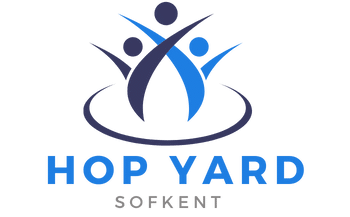How Can Seniors Effectively Manage Blood Pressure Through Mind-Body Techniques?

As we advance in age, health concerns often become a greater focus. One of the common issues that seniors face is high blood pressure, also known as hypertension. It's a condition that puts undue stress on the heart and can put seniors at a heightened risk of heart disease, stroke, and other health complications. The good news is, there are multiple ways to manage blood pressure, and it's not all about medication. Increasingly, mind-body techniques like meditation, breathing exercises, and relaxation methods have been recognized for their role in helping to lower high blood pressure. This article will delve into these techniques and how seniors can utilize them for effective blood pressure management.
The Basics of Blood Pressure and Hypertension
Before we delve into the mind-body techniques that can help manage blood pressure, it's essential to understand what blood pressure is and how hypertension affects the body and health.
Lire également : How Can Seniors Over 70 Optimize Their Cognitive Health with Specific Types of Brain Training Games?
Blood pressure is the force that your heart uses to pump blood around your body. It's measured in millimeters of mercury (mmHg) and is recorded as two figures. The first (systolic) is the pressure when your heart is pumping blood out, and the second (diastolic) is the pressure when your heart is resting between beats. Hypertension is diagnosed when your blood pressure is consistently 130/80 mmHg or higher.
Left uncontrolled, hypertension can have several detrimental effects on your health. It puts extra strain on your heart and blood vessels, increasing the risk of heart disease and stroke. It can also affect your kidneys, leading to kidney disease, and your brain, leading to dementia and cognitive decline.
En parallèle : What Are the Best Gardening Modifications for Seniors with Reduced Mobility?
Utilizing Mind-Body Techniques to Lower Blood Pressure
The connection between the mind and body is profound, and a growing body of evidence suggests that mind-body techniques can play a significant role in managing blood pressure.
Meditation: A Mindful Approach to Blood Pressure Management
Meditation is one of the most widely recognized mind-body techniques. It's a practice that involves focusing your mind on a particular object, thought, or activity – such as your breath – to train attention and awareness, and achieve a mentally clear and emotionally calm state.
Research indicates that regular meditation can help reduce high blood pressure. It works by activating your body's relaxation response, which decreases your heart rate, slows your breathing, and lowers your blood pressure. It also helps to reduce stress, a known risk factor for hypertension.
Breathing Exercises: The Power of Conscious Breathing
Breathing exercises are another powerful mind-body tool for managing blood pressure. Deep, controlled, and conscious breathing can help to lower blood pressure by relaxing the blood vessels, slowing the heart rate, and reducing stress.
A popular breathing technique is diaphragmatic breathing, or "belly breathing." This involves breathing deeply into your diaphragm rather than shallowly into your chest. It's a calming practice that can trigger a relaxation response and lower blood pressure.
Diet and Exercise: Essential Components of a Blood Pressure Management Regime
While not typically thought of as mind-body techniques, diet and exercise are key components of a holistic approach to managing blood pressure. A heart-healthy diet rich in fruits, vegetables, lean proteins, and whole grains can help to lower high blood pressure. Additionally, regular exercise, particularly activities like yoga, tai chi, and walking, can reduce blood pressure by strengthening the heart, improving circulation, and reducing stress.
The Role of Relaxation in Blood Pressure Management
Relaxation is another crucial aspect of blood pressure management. Chronic stress is a significant risk factor for hypertension, and learning to relax and manage stress can have a profound effect on blood pressure levels.
Progressive Muscle Relaxation
Progressive muscle relaxation is a technique that involves tightening and then releasing different muscle groups in your body. It's often used to help with conditions like anxiety and insomnia, but it can also be helpful for blood pressure control.
The act of tensing and then releasing your muscles can help to reduce feelings of stress and anxiety, leading to a relaxation response in your body – lower heart rate, slower breathing, and lower blood pressure.
Guided Imagery
Guided imagery is a relaxation method that involves using mental images to take a visual journey to a peaceful, calming place or situation. Research has found that using guided imagery techniques can help to reduce blood pressure, likely by eliciting a relaxation response in the body.
In conclusion, seniors can effectively manage blood pressure by adopting a combination of mind-body techniques, a healthy diet, and regular exercise. It's important to remember that these methods should complement, not replace, any medication or treatment plan advised by a healthcare professional. It's always important to discuss new health practices or changes in routine with your doctor.
Natural Ways to Control Blood Pressure
Apart from mind-body techniques, several lifestyle changes can contribute to managing high blood pressure effectively. Physical activity is an important aspect of a blood pressure management regime. Regular exercise helps make your heart stronger and more efficient at pumping blood, consequently lowering the pressure in your arteries.
Walking, jogging, cycling, swimming, and dancing are great forms of aerobic exercise that can help lower high blood pressure. Strength training can also be beneficial. Resistance and weight training exercises, for example, can help reduce blood pressure by improving muscular strength and endurance.
Meanwhile, tai chi and yoga are low-impact exercises that combine physical activity with deep breathing and meditation. Their mindful approach promotes stress reduction and relaxation, further aiding in blood pressure control.
The role of a healthy diet in controlling high blood pressure can't be overstated. Consuming a balanced diet rich in fruits, vegetables, lean proteins, and whole grains can help lower high blood pressure. Limiting sodium intake and alcohol can be beneficial as well.
Dietary approaches to stop hypertension, or the DASH diet, is recommended by the American Heart Association for high blood pressure management. It emphasizes eating fresh fruits and vegetables, whole grains, lean proteins, and low-fat dairy while minimizing processed foods rich in sodium.
Conclusion: A Holistic Approach to Blood Pressure Management
In summary, seniors can manage their blood pressure effectively by incorporating a variety of strategies. While medication is often necessary for those with very high blood pressure or those who have heart disease, adopting a holistic approach can greatly complement medical treatment.
Consistently practicing mind-body techniques such as meditation, conscious breathing, and progressive muscle relaxation can trigger the body's relaxation response, reducing heart rate, and blood pressure. Engaging in regular physical activity, such as tai chi or yoga, and maintaining a heart-healthy diet are other key elements of a comprehensive blood pressure management plan.
However, it's essential to consult with a healthcare professional before making significant changes to your lifestyle or routine. Implementing these techniques should complement, not replace, prescribed medication or treatment plans.
Maintaining healthy blood pressure levels is not just about avoiding the risk of heart disease and stroke but also about enhancing mental health and overall quality of life. Therefore, it is crucial to understand the importance of a multi-faceted approach that combines mind-body techniques, diet, exercise, stress management, and prescribed medication in managing blood pressure.
Remember, your journey towards better health is a marathon, not a sprint. Small, consistent changes can have a significant impact over time. Take charge of your health and start incorporating these practices today to live a healthier, happier life.
